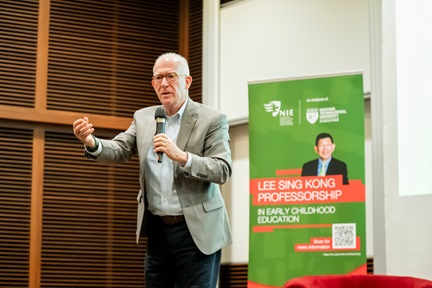MOE to pilot teaching moral lessons via computer game
Upper primary school pupils may soon learn about empathy and morality in class through a computer game.
Developed by the Ministry of Education (MOE), the game will be piloted in some schools next year alongside current lessons and resources, the ministry said in response to queries.
The game will ask pupils to respond to scenarios and tasks meant to simulate real social situations they may experience in school.
These include situations such as helping a new classmate, managing conflict during group work, or other scenarios that may help pupils reflect on how to be empathetic and communicate sensitively with others, MOE said.
Using the children's responses, teachers can lead discussions to reinforce the learning of social and emotional competencies, it added.
According to tender documents for a service to host and capture data from the game seen by The Straits Times, it was developed for Primary 4 to 6 pupils to use during character and citizenship lessons and contains six scenes and 52 tasks for pupils to complete.
Character and citizenship education (CCE) is a subject taken by primary, secondary and junior college students, and is meant to teach them moral values and help them understand contemporary issues such as bullying, online media, race and religion. Its curriculum was refreshed last year.
The tender documents state that the system is expected to have a total of 1,800 users, with 120 using it at the same time on a daily basis. Pupils are intended to experience different social situations in a virtual setting and make choices on how to respond, said the documents.
The game is also meant to help teachers understand how pupils are likely to respond in different social situations, and use the data collected and reports generated to facilitate follow-up discussions and plan targeted interventions.
Meanwhile, MOE headquarters will monitor data across schools and work with teachers on targeted follow-up activities, the documents said.
Associate Professor Jason Tan from the National Institute of Education said MOE's adoption of a game for CCE could be to actively tap the familiarity of such a medium for children for educational purposes.
He said the game's use of simulations that lead into class discussions is consistent with MOE's approach to teaching CCE, which includes encouraging the development of empathy, care, respect and moral reasoning skills in pupils.
Prof Tan, who teaches a course on CCE at NIE, said: "One of the things you're trying to do is to get a child to consider why a person did this or made that choice, and the other possible options, along with the possible effects of each choice on other people essentially to put themselves in other people's shoes."
However, such approaches in school must be coupled with support from the home environment as moral development is a lifelong process and parents are the pupils' primary educators, he added.
Prof Tan said: "It is one thing for students to be exposed to these simulations, but the greater challenge is how to get students to apply these in a long-lasting, sustained and consistent way, not just in the classroom."
Read the original article here.
Source: The Straits Times © SPH Media Limited. Permission required for reproduction



.tmb-listing.jpg?Culture=en&sfvrsn=f130c079_1)


